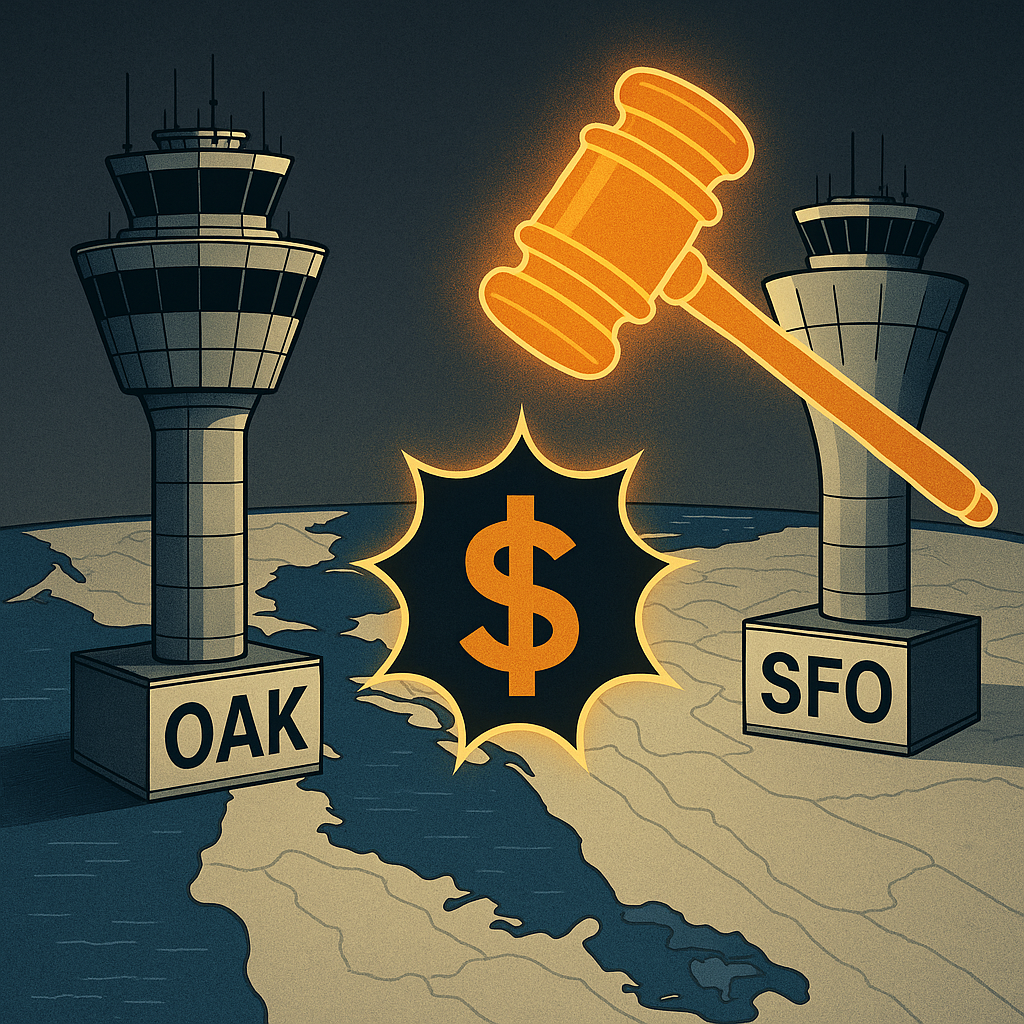Oakland Airport Renaming: A Battle for Identity and Economic Advantage – Depth & Clarity

OAKLAND, CA – In a move that has ignited a fierce jurisdictional dispute and a high-stakes legal battle, the Oakland Board of Port Commissioners has voted to officially change the name of its airport to “San Francisco Bay Oakland International Airport.” This decision, made despite a looming lawsuit from the City and County of San Francisco, underscores a deeper struggle for regional identity, economic advantage, and the very definition of the iconic San Francisco Bay Area. This article delves into the nuances of this controversy, offering Depth & Clarity on the motivations, legal challenges, and broader implications of Oakland’s bold rebranding.
The Quest for Recognition: Why Oakland Seeks a New Identity
The primary driver behind Oakland’s decision to append “San Francisco Bay” to its airport’s name is a strategic effort to enhance its visibility and attract a larger share of the lucrative Bay Area tourism and business market. For years, officials at Metropolitan Oakland International Airport (OAK) have argued that the current name does not adequately convey its geographical proximity to the globally recognized San Francisco Bay. Despite its long-standing presence as a key aviation hub since 1927, OAK often finds itself overshadowed by its larger, more famous counterpart, San Francisco International Airport (SFO) [1].
Proponents of the name change contend that many travelers, particularly international visitors, are unaware that Oakland’s airport is a viable and often more convenient gateway to the entire Bay Area. By explicitly including “San Francisco Bay” in the name, Oakland aims to eliminate this confusion, making it clear that OAK serves the broader region and is not merely a local airport. Port Commission President Barbara Leslie articulated this sentiment, stating, “Our Board came to these discussions with a shared love of Oakland and a desire to see our city and airport thrive. We are moving forward with a commitment to honoring our past while building a stronger, more inclusive future” [1]. The hope is that increased recognition will translate into higher passenger volumes, more airline routes, and ultimately, greater economic prosperity for Oakland and the East Bay.
The Legal Gauntlet: San Francisco’s Trademark Infringement Claim
San Francisco, however, views Oakland’s rebranding as a direct assault on its established brand and a potential source of significant economic harm. The City and County of San Francisco swiftly filed a lawsuit in the U.S. District Court, alleging that the new name infringes on the trademark it holds for San Francisco International Airport (SFO). San Francisco officials argue that the inclusion of “San Francisco Bay” in Oakland’s airport name is deliberately misleading and could cause considerable confusion among travelers, potentially diverting passengers and revenue away from SFO [2].
City Attorney David Chiu expressed “serious concerns” about the renaming, emphasizing the potential for economic loss and traveler confusion. He stated, “San Francisco took no pleasure in filing this lawsuit. We urge Oakland leaders to see reason and collaborate with us so that we can avoid costly litigation. If we can work together on a name that meets the goals of both airports, we should do so for the good of all travelers and our region” [1]. This legal challenge highlights the intense competition between the two airports, both vying for market share in one of the nation’s busiest air travel regions.
In response, the Port of Oakland filed a counterclaim, seeking a court ruling that its new airport name does not infringe on SFO’s trademark. Port Attorney Mary Richardson asserted that San Francisco’s lawsuit is an attempt to “stop consumer education, prevent expanded air travel options for Bay Area residents and visitors, and is a misguided use of San Francisco taxpayer dollars” [1]. This legal back-and-forth underscores the deep-seated rivalry and the significant financial stakes involved for both cities.
Broader Implications: Regional Identity, Economic Competition, and the Future of Bay Area Travel
The Oakland airport renaming controversy is more than just a dispute over a name; it reflects broader tensions within the highly competitive San Francisco Bay Area. It raises fundamental questions about regional identity, economic development strategies, and the future of air travel in one of the world’s most dynamic regions.
AI Insight: From a strategic perspective, Oakland’s move can be seen as an attempt to reframe the narrative of Bay Area air travel. By explicitly linking itself to the “San Francisco Bay,” Oakland is not just seeking to clarify its location but to assert its role as an equally valid, and perhaps more accessible, entry point to the entire region. This kind of rebranding, while potentially contentious, is a common tactic in competitive markets to capture a larger segment of the consumer base. The legal challenge from San Francisco, in turn, is a defensive maneuver to protect an established brand and market position.
The outcome of this legal battle could set a precedent for how regional assets are named and marketed, particularly in areas with multiple, closely located economic centers. It could influence future branding strategies for other airports, ports, and even tourism boards across the country. Furthermore, the controversy highlights the ongoing need for regional cooperation and planning, especially in areas like transportation infrastructure, where coordinated efforts can benefit all stakeholders.
For travelers, the dispute, while seemingly bureaucratic, has practical implications. Clear and unambiguous airport naming is crucial for navigation and planning. While Oakland maintains that its three-letter code (OAK) will remain unchanged, mitigating some confusion, the potential for misdirection, particularly for those less familiar with the geography of the Bay Area, remains a concern. The resolution of this conflict will ultimately shape the traveler experience and the economic landscape of Bay Area aviation for years to come.
Conclusion: A Defining Moment for Bay Area Identity – Depth & Clarity
The Oakland airport renaming controversy is a defining moment for the San Francisco Bay Area, encapsulating its complex interplay of local pride, economic ambition, and regional interconnectedness. The legal battle between Oakland and San Francisco is not merely about a name; it is about market share, identity, and the future economic vitality of tw










